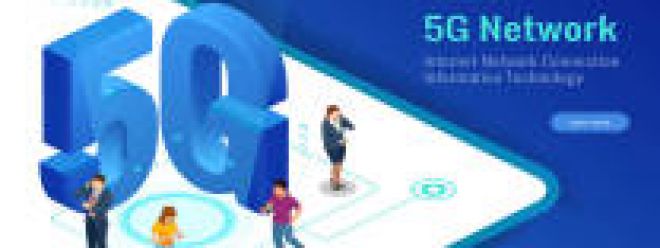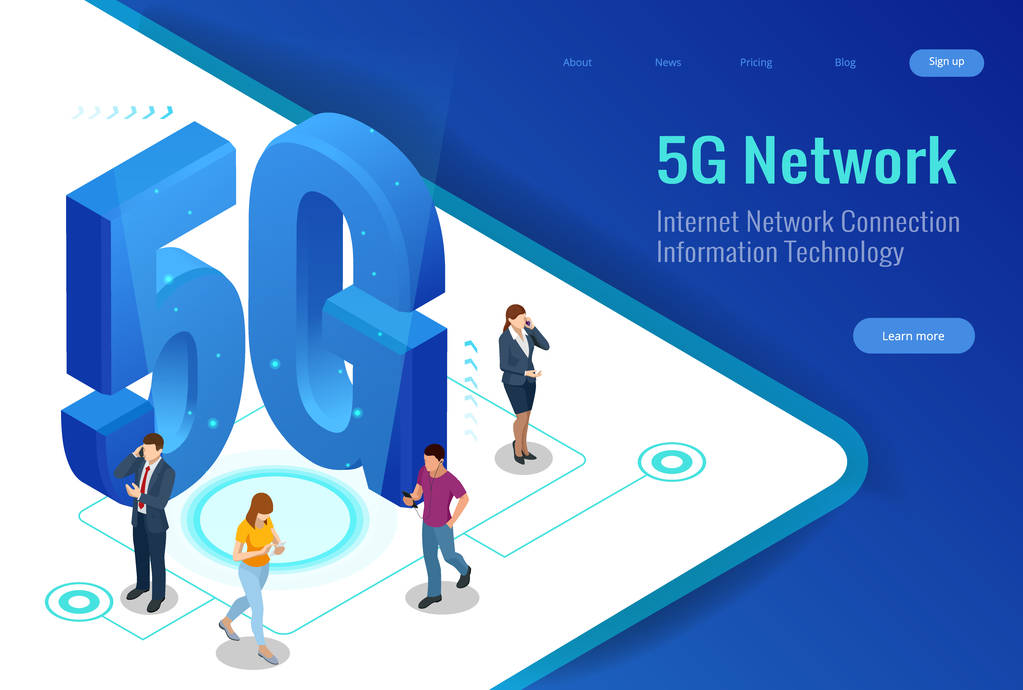Is 5G the missing piece in the digital twin puzzle?

In this always-connected digital age, 5G technology could be the solution to many of the user experience headaches facing businesses. The current COVID-19 pandemic has fundamentally changed business and customer expectations. Growing reliance on digital technologies not only forces companies to change their business models in order to adapt to new market realities, but also makes it difficult to keep up with "always connected" customers and their expectations. Now, with the arrival of 5G, given its potential to transform business and digital experiences, businesses must step up to realize its potential.

5G technology itself has many use cases. But there are many existing use cases that can simply be extended by it. For example, 5G with good high-speed connectivity, higher bandwidth and lower latency will provide a wider range of services and immersive experiences for industries such as BFSI, retail, healthcare, manufacturing, automotive, education, media and entertainment, etc. new business models that can even be offered on mobile handheld devices.
Let's take a look at some use cases that show that 5G will revolutionize digital services and experiences.
Smart City
5G could be the final piece of the smart city puzzle. Smart cities involve always-connected sensors and devices that can generate exponential amounts of real-time data. If managed properly, this real-time data can create new opportunities for smart buildings, smart lighting, smart metering, smart transportation, and improve the efficiency of smart governance and service delivery of smart city infrastructure.
smart transportation
A truly connected car will become a reality. With 5G, cars will be software-defined, network-aware, hyper-connected, and will interact with all other vehicles on the road and around them. 5G-enabled cars will allow drivers to enjoy their favorite entertainment apps like music streaming services or audio book services from the comfort of their car. Smart vehicles and real-time traffic management will also make daily commutes faster. In fact, 5G will allow drones to fly with great precision, making drones a critical part of transportation and logistics.
smart home
5G offers a viable alternative to fixed internet access and is expected to drive the rapid adoption of smart home products and solutions in the home. The impact of rolling out internet connectivity on smart home devices and appliances could be huge, and it will ultimately change the way we live and work, especially considering that working from home and remote work have become the new reality for the past two years.
Immersive Learning and Training
5G has the potential to transform teaching, training and learning in a way that makes it truly immersive. AR, VR, XR have begun to push education towards a more experiential dimension, and 5G will create more opportunities in education and training environments, making complex and abstract explanations easier to teach students in a rich experience environment Introduce concepts.
Immersive Gaming and Entertainment
5G could bring a platform-agnostic future to gaming. Mobile gamers are increasingly exposed to immersive multiplayer experiences that were previously limited to consoles and PCs. Cloud gaming, XR gaming and 5G will enable more premium games to run on phones.
According to Avneet Rana, co-founder and technical director of Baazi Games, India is one of the most promising gaming markets, which will lead to the emergence of a large number of mobile players. 5G networks will provide faster, lower latency connections, enabling smartphone gamers to experience higher-quality, uninterrupted cloud gaming sessions. In addition to a wide variety of premium games with HD streaming and longer playtime, users can also experience VR gaming across multiple platforms and modes. In addition, the combination of 5G and AI can significantly improve and enhance the gaming experience. 5G will also be able to provide a glitch-free, lag-free and higher-speed experience at the same time.
Internet streaming content has fundamentally changed consumer behavior and the home entertainment space, and will continue to evolve further with 5G. Live events will take full advantage of the speed and potential of 5G, and sports, concerts, live shows, movie premieres, and all of these location-based events will be able to reach truly global audiences across time zones.
metaverse
As 5G continues to blur the lines between the real and virtual worlds, its impact on the metaverse economy may be far more interesting than we expected. For example, right now you need a wired connection or Wi-Fi connection to the Metaverse, but high-bandwidth and low-latency 5G networks will allow people to use full-featured VR headsets or similar hardware on the move.
Tejinder Singh, head of product at Lava International, said: “The metaverse is a new area that has the potential to change the way people connect, interact in their social lives and work spaces. There will be many use cases for the metaverse powered by 5G technology. Only Real-time digital movement to other locations in the metaverse with touch and feel capabilities will only be possible if high-speed networks can support the same capabilities that are enabled by 5G networks.